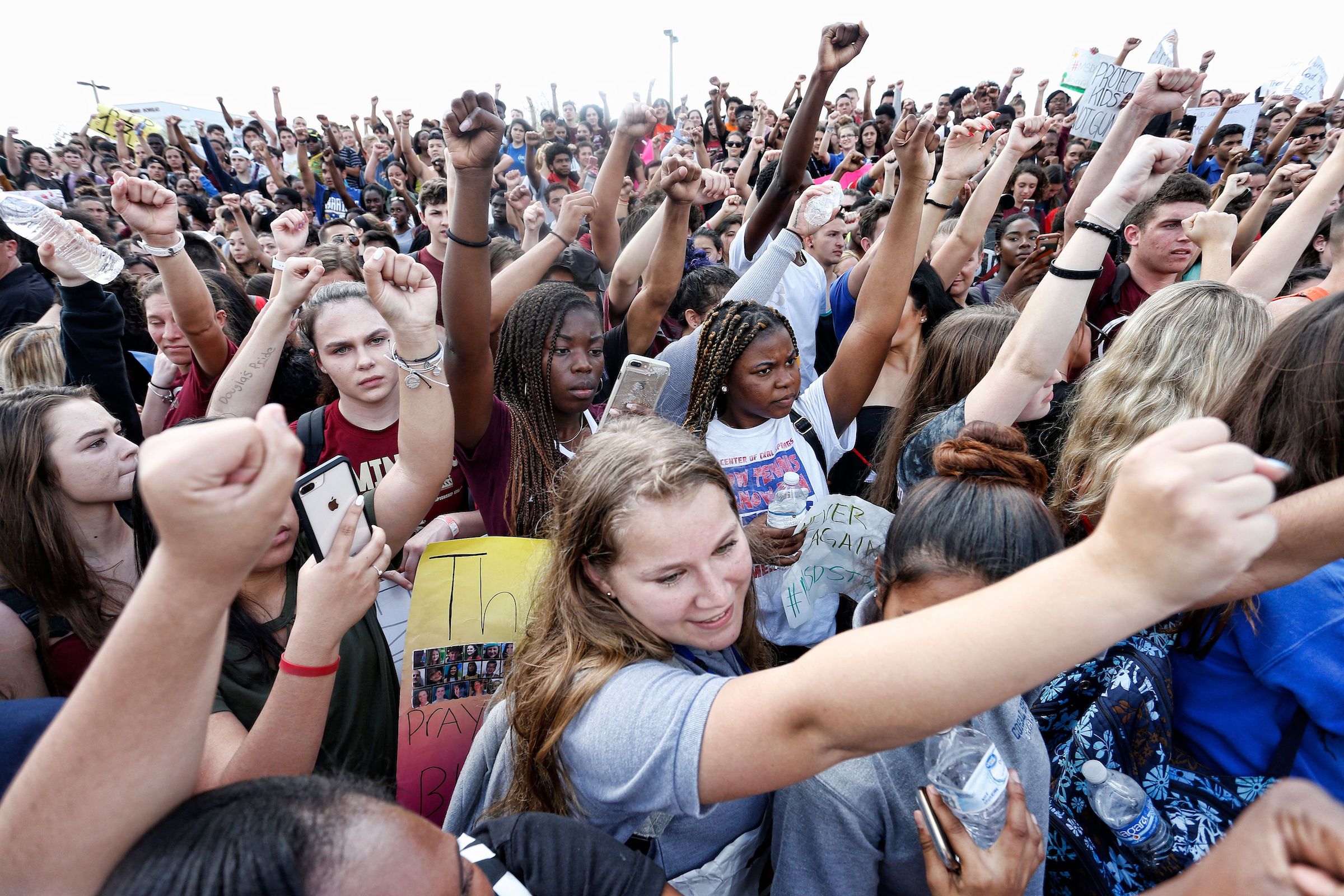Kristin Goss is a Duke public policy professor who has been studying the gun debate since Columbine. On the eve of Saturday’s student-led marches for gun reform, she spoke with Trace Editorial Director James Burnett about what lies ahead for the growing movement.
We went into the conversation with a list of questions for Goss. But over the course of the call, it became clear that she was already zeroing in on more interesting queries. “What the students are doing is really interesting, and I suspect that their impact is going to come in ways that we’re not anticipating or seeing,” she told us at one point.
Here are four of the things Goss will be watching:
1. “To what extent will the young people who are energized around this issue have an influence on their parents?”
- “Normally political scientists and social scientists think about political socialization as happening from the parent to the child: The parents are teaching their students about politics and are modeling political behaviors.”
- “But there is some evidence, actually, that sons and daughters can influence their parents. It’s not a well-developed literature, but there’s evidence going back to the ’70s, in a more radical age, that children can change their parents’ minds, and that young people can get their parents more attuned to politics and political issues.”
- “That’s why, to me, one of the great questions is going to be, ‘What’s happening around the dining room table with young people feeling really engaged on this issue?’ Are they going to be talking to their parents? Are they going to be, if not changing their parents’ minds, encouraging their moms and dads to be more engaged on this issue, to vote on this issue, to take other political actions around the issue?”
2. “What happens when the students who were most affected by the Parkland shooting graduate?”
- “They’re going to be going to college — do they reconstitute their gun reform organizations on their college campuses? They’ll be starting jobs and families and going through a lot of other change in their lives in the next 10 years. Will those changes allow them to continue sustained involvement around anti-violence work?” The students at Parkland are choosing to become involved in this issue because this terrible event happened. Sustaining that involvement will probably depend on their developing a collective identity around a set of ideas and themselves as political actors and as moral actors.”
- “There’s also a related question: You think of Stoneman-Douglas high school, any other high school where there’s been an incipient mobilization, all the schools that had walkouts. Are there formal organizations, clubs, being developed in these schools that have some sort of structure that can be gained from year to year as students cycle through?”
- “Schools obviously sustain a lot of organizations — but schools also have turnover by definition. Students move through, their interests shift. So some of it will probably depend on teachers and staff members, and other sources of stability and continuity within schools, and what they are doing to help sustain these groups.”
3. “How will candidates run on, or run away from, this issue over the next eight months?”
- “Campaigns are often a really good window into how an issue is playing on the ground, because they are close to their communities, they’re doing polling, they’re doing focus groups. Candidate mailers and advertising can serve as pretty good windows into whether the politics are shifting. So I definitely will be looking for what kind of mailers are arriving in my mailbox or in my neighbor’s mailboxes in North Carolina.”
4. “Ultimately, guns are much like any other political issue. It really is going to come down to, ‘How many people are involved? And how important is gun reform to their vote?’”
Read Next

An American Crisis: 18 Facts About Gun Violence — and 6 Promising Ways to Reduce the Suffering
- “I don’t think we have resolved any tensions in the gun debate. We just have different people who have different arguments. Ultimately it’s going to come down to, how mobilized are people on each side?”
- “There’s a famous political scientist name E. E. Schattschneider. He says, ‘If you want to understand how an issue is resolved politically, watch the audience.’ In his idea of politics, it’s all about getting the bystanders involved. And having really powerful frameworks that are wedded to underlying realities can help bring the audience into the fray.
- “Mothers who have been the grassroots of the gun control movement have been saying, “We have a duty of care towards the children.” With this new movement of teenage activists, it’s the children themselves saying, ‘You are not doing a good enough job taking care of us.’ They’re taking the other side of the same coin. That framing is very powerful.”
- “I have a theory about why appeals to children’s well-being works in our politics. We have a political culture that is suspicious of the state, and a cultural tendency across the left and the right to value individualism and liberty. But we also know that we need to pass laws to make sure that we have an orderly society and a law-abiding society.”
- “So there’s this hurdle that needs to be cleared in order to justify restricting people’s liberty. Children are innocent. They’re not responsible for their own well-being; it’s something that we as a society are responsible for. And I think that argument helps clear that anti-state, don’t-tread-on-me barrier.”
This story first appeared in our newsletter. Sign up here.

